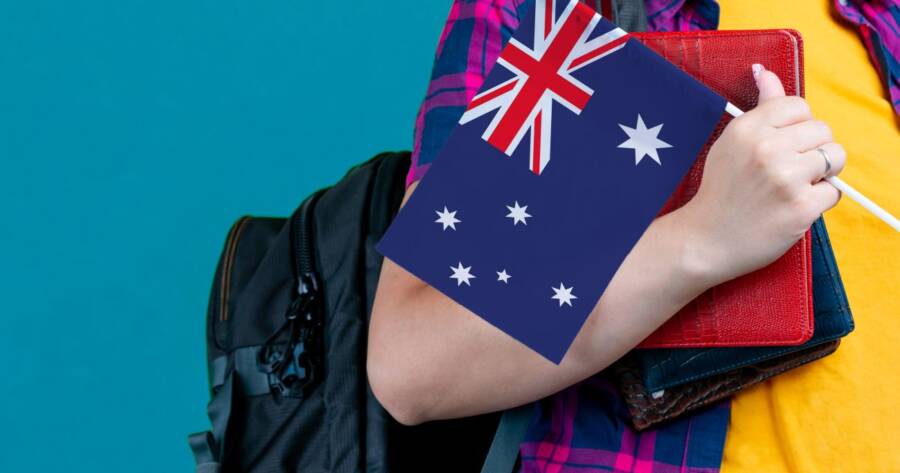- Scholarships and short-term loans for international students can offset the cost of tuition in Australia.
- The cost of living varies throughout the country, so studying in a smaller city can be more inexpensive.
- A part-time job, shared housing, and public transportation can reduce international students’ expenses even more.
Studying in Australia can be an enriching experience for college students. They can immerse themselves in a new culture, explore a country they’ve never before seen and build relationships with other international students as well as locals.
However, international study also comes with significant costs, which might deter students from exploring the opportunity. With some smart strategies, international students can study in Australia for cheap, so consider these tips as you plan your adventure abroad.
Apply for International Postgraduate Research Scholarships
Just like studying in the United States, the cost of tuition in Australia can be offset by scholarships. Fortunately, scholarships exist specifically for international students. If you land one, you’ll be able to reduce your out-of-pocket expenses on tuition, which may free up money for other needs while you’re studying abroad.
International Postgraduate Research Scholarships are funded by the Commonwealth Department of Education and Training. They cover full tuition and the cost of a standard overseas student healthcare policy. Eligible applicants must be full-time students enrolled in a higher degree program at an Australian research university and studying in a program in one of the university’s research priority areas.
Find Lower-Cost Housing
Living on campus at an Australian college or university is convenient, but it might not be the most inexpensive option. Once you settle on a school and gain your acceptance, start researching nearby off-campus housing that comes in at a lower price point. Naturally, it costs less when you have roommates to split the expenses, so living on your own might not be a possibility if you’re looking to reduce expenses as an international student. Living with roommates has other benefits as well, including helping you build a social circle when you move to a new country.
Find a Loan Program
If you can’t cover the cost of international study, you can still rely on loans to reduce your out-of-pocket expenses. Some U.S. federal loan programs can be applied to international study, so if you already have student loans, you can see if those extend to your Australian studies.
Additionally, you can also find university-specific loans at schools in Australia. For example, the University of Melbourne offers loans that can cover course-related expenses and living expenses such as rent. International students can borrow up to $3,000 and need to repay the loan before course completion, so this short-term loan won’t be one you have to carry with you after you graduate, but it can help fund your education when you enroll.
Work Part-Time
Earning money while studying abroad is another way to study in Australia on the cheap. Consider part-time job opportunities that work with your course schedule to help you pay for your living expenses and tuition while you study. Many colleges and universities offer part-time jobs for students, and they’ll work around your course schedule.
When looking for a part-time job in Australia, start with your university. Finding an on-campus job can be convenient and easy to work around your course schedule. However, you can certainly venture off campus for work as well, looking at retail establishments, restaurants and more. Consider your skill set and preferences as you apply for part-time jobs in Australia.
Budget for Your Student Visa
You cannot study in Australia without a student visa, so this is your initial expense as you plan for life abroad. You will need to complete a Subclass 500 Student Visa application before you move. This temporary visa allows you to study in Australia for up to five years. The cost of the visa application is $630 AUD and should be worked into your educational budget because it is a necessary expense to allow you to move to and study in Australia. If you need to study beyond the five-year window, you can apply for another visa at the same price point.
Sign Up for the Destination Australia Program
Launched in 2019, the Destination Australia Program provides up to 380 annual awards to both local and international tertiary education students. Funding includes up to $15,000 per year for students who participate in the program. These funds can be used at colleges and universities outside of major Australian cities. So, if you’re flexible in where you attend school, you can benefit from this program that aims to bring international students to regional colleges and universities.
Live in a Smaller City
When you think of Australia, big cities such as Sydney and Melbourne probably come to mind. However, like in the United States, bigger cities come with a higher cost of living, which means studying in these cities can be more expensive. Consider attending a university in a smaller city that will have a lower cost of living. Some options may include the:
- University of Adelaide;
- James Cook University Cairns, and;
- University of Western Australia in Perth.
Rely on Public Transportation
Want to get out and explore Australia? Use public transportation to cut down on travel costs. The country offers a wealth of reasonably priced public transportation options, especially if you’re living in a big city. Since you won’t have a car, you need another form of transportation to travel around. You can find buses, trams, and ferries that can shuttle you through town or from one city to the next. If you plan on using public transportation often, sign up for a card that you load with money, allowing you to scan it and cover your fares without any hassle.
Pair Up with Other International Students
Looking for adventure? Rather than traveling through Australia solo, find some fellow international students who want to see the sights. Traveling as a group can be less expensive, allowing you to share transportation and accommodation costs. If you want to visit another Australian city during your semester break, for example, consider traveling with friends and staying in a hostel, which can cut down on costs. Your university might even offer travel experiences within the country at a reduced rate.
Learn Your Way Around the Kitchen
If your dorm room, apartment, or guest house has a kitchen, you can significantly reduce your variable expenses. Eating out every meal is going to add up, so cooking at home can bring down how much you spend on food every week. While you certainly want to explore Australia’s restaurants, reducing the number of meals out every week can result in savings. Then, you can apply those savings to other areas of the budget where you might want to splurge.
Research Cost of Living
The cost of living varies throughout the country. Research the cost of living before you settle on a university to determine what you can afford. Don’t get your heart set on a school or educational program in a city that exceeds your budget. Check out a cost-of-living calculator that helps you assess not only what you can expect to pay during your studies but also compares that cost of living to what you’re paying now at home.
Ask for Help
If you’re facing financial uncertainty during your time in Australia, your university may be able to help. Educational institutions have resources on hand for students as they navigate the financial side of studying internationally. Find out if your school has an international student support department or organization, which may be able to provide helpful resources as you navigate life in Australia. Student accommodation services departments may be able to provide some financial guidance during your stay.
Consider Your Field
Tuition costs vary not only by university but also by field. Undergraduate tuition, for example, is going to cost less than post-graduate studies. Even more, tuition may vary from major to major. In Australia, some courses are considered to have a high cost of delivery, such as in medical or veterinary fields, and tuition will reflect those extra costs. If you’re committed to a particular program but not a specific university, then compare tuition costs from one school to the next.
Set a Budget
Anticipating your expenses and setting a budget allows you to better control your money when you’re studying in Australia. The Australian government states that the average 12-month living expenses for students in the country is $21,041 AUD. While you can’t control the cost of your tuition — although you can offset it with scholarships or loans — you can control other variable expenses, including food, transportation, and housing. With an established budget, you can live within your means during your study abroad experience in Australia, allowing you to learn while avoiding debt.



